Illinois Baptist



What these SBC candidacies represent
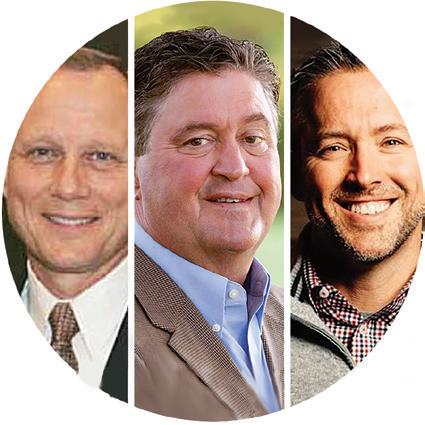




 BY ERIC REED
BY ERIC REED
St. Louis | With another call to prayer for the redemption of America, another missionary commissioning, and another bunch of resolutions on national politics and the precipitous slide in our nation al moral values, this might appear to be another fairly predictable meeting when the Southern Baptist Conven tion convenes in St. Louis June 14-15.

It isn’t.
The more significant news from the convention is not likely to come from its political statements or from protests by cultural liberals outside the hall. What can be said about the run for the White House, samesex marriage, or sexual identity that hasn’t already been said? It will be in the election of an SBC president to succeed outgoing Arkansas pastor Ronnie Floyd that messengers will signal a turn.
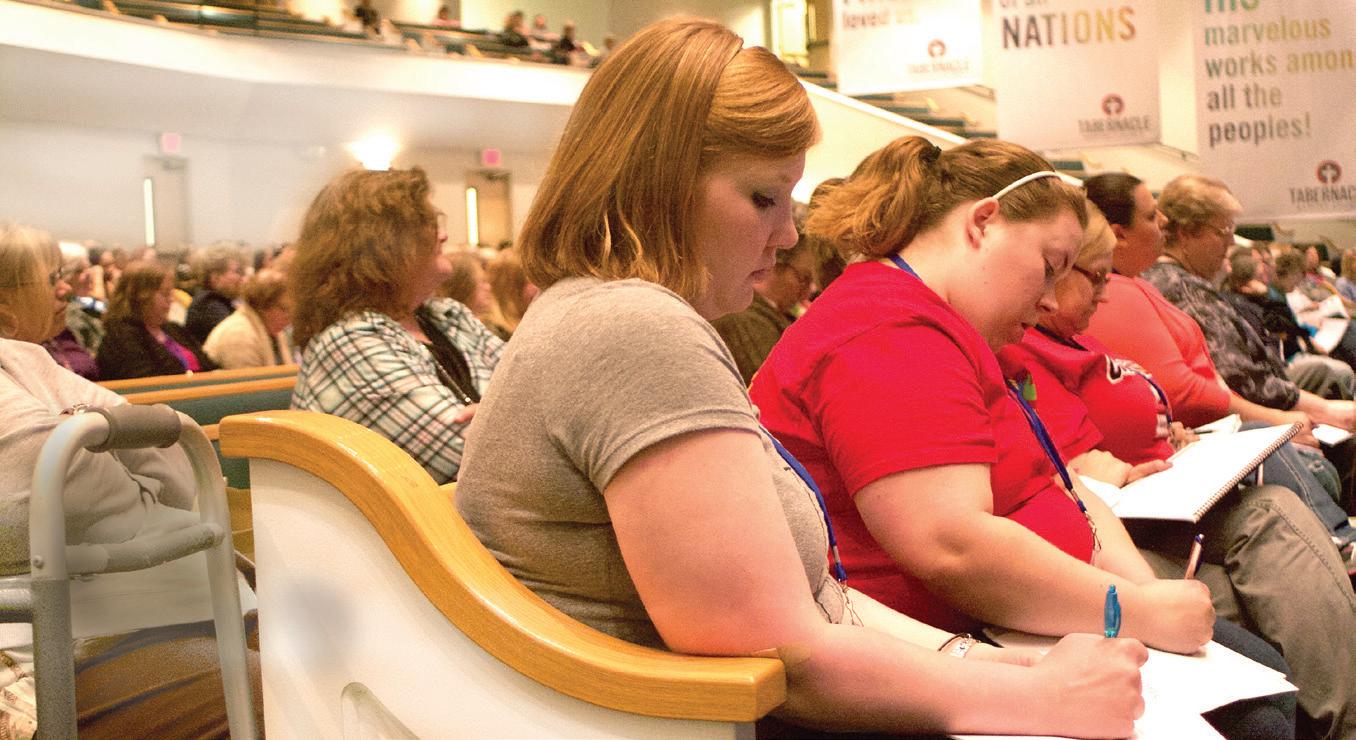

Floyd has issued a “national call to prayer for spiritual leadership” in the Tuesday evening session. Floyd is using the mid-America location to
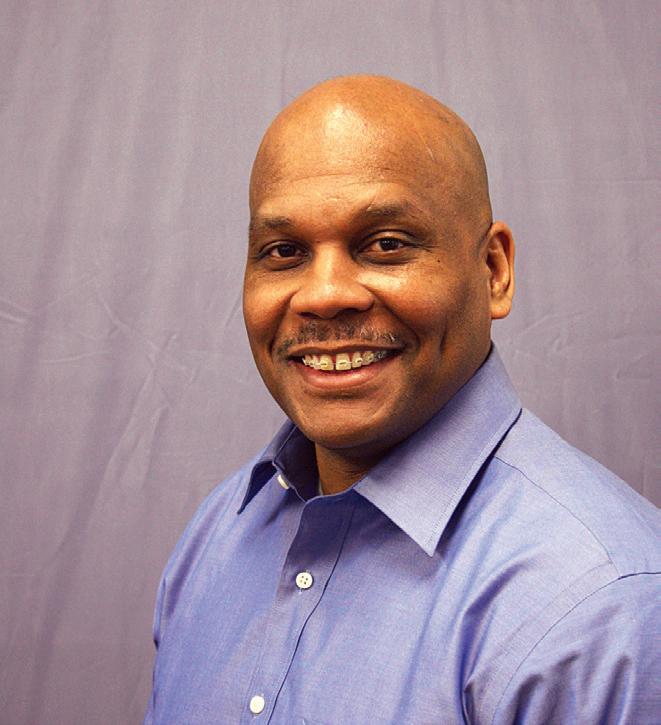
P. A-3
The was named #1 Christian Newspaper in 2016 by Evangelical Press Association & Baptist Communicators Association

“When you tell a 22-year-old to turn off the phone, don’t ruin the movie, they hear, ‘Please cut off your left arm above the elbow’….That’s not how they live their life,” said AMC Theaters CEO Adam Aron. But the public disagreed, and AMC backed off a plan to allow texting in some movie theatres.
The bigger news is how highly “church” scored. Sacred spaces: it’s not OK to use a cell phone...
Editor - Eric Reed
Graphic Designer - Kris Kell
Contributing Editor - Lisa Sergent
Editorial Contributor - Meredith Flynn
Administrative Assistant - Andrea Hammond

For questions about subscriptions, articles, or upcoming events, contact the Illinois Baptist at (217) 391-3110 or IllinoisBaptist@IBSA.org
The Illinois Baptist is seeking news from IBSA churches. E-mail us at IllinoisBaptist@IBSA.org to tell us about special events and new ministry staff.


POSTMASTER: The Illinois Baptist is owned and published every three weeks by the Illinois Baptist State Association, 3085 Stevenson Drive, Springfield, Illinois 62703-4440. Subscriptions are free to Illinois Baptists. Subscribe online at IBSA.org
NATE ADAMSMy history attending the annual Southern Baptist Convention is not as long or as deep as many. Occasionally I meet someone who will tell me, “This is my 40th SBC,” or “I haven’t missed a convention in 25 years.”
Though my father was a pastor and then director of missions, I didn’t attend my first SBC until 1992. That year the convention came to Indianapolis, as close as it had been in many years to the Chicago suburbs where we lived. A friend from church suggested going, “because it’s rarely so close.” Indeed, the SBC would not come within 500 miles of Chicago for another 10 years. So we went and took my dad along with us.
Little did I know that only five years later I would be flying to only my second SBC in Dallas, to be voted on as a vice president with the newly formed North American Mission Board. I haven’t missed an annual SBC meeting since then. This year, Lord willing, will be 20 in a row.
I share this personal history to say that I really do understand why the average person may not regularly attend the annual SBC. Unless there’s a controversy or crisis of some kind, the SBC is often left primarily to professionals who have travel budgets, and pastors who may direct part of their family vacation time there. Perhaps that’s why attendance at the SBC has only topped 10,000 three times in the last 15 years. Peak attendance during the conservative resurgence of the mid-1980’s was over 40,000.
But now, let me challenge you to attend the June 14-15 SBC in St. Louis this year. As my friend said, it will be years before it’s this close to Illinois churches again. If you haven’t been before, or can’t go often, this is the year. More importantly, this year’s elections and other actions will be significant. It was announced just last week that Illinois’ own Doug Munton, pastor of First Baptist, O’Fallon, will be nominated as First Vice President. I’m really excited about that. I hope hundreds and hundreds of Illinois Baptists will be there to support this outstanding Illinois pastor for this national role.
The election for president this year also presents a significant choice between pastors with notable differences, not just in ministry experience, but in the areas of doctrinal conviction and missions cooperation. Illinois messengers will want to study these in advance of the convention, and arrive prepared to support the nominee who best represents not only their own churches’ practices and convictions, but also the direction that they feel is best for our Great Commission cooperation as Baptist churches in the future.
Normally Illinois ranks about 15th of 42 state conventions in the number of messengers it sends to the national SBC. But the last time the convention was in St. Louis (2002), Illinois ranked 5th, with 611 messengers from 193 churches. And in 1987, the previous time the SBC was in St. Louis, Illinois churches sent 1,373 messengers. Yet last year only 139 messengers from Illinois churches attended the SBC in nearby Columbus.
To encourage messengers to turn out in record numbers this year, IBSA will be hosting a reception for Illinois Baptists at the St. Louis convention center, on the Monday night following the Pastors’ Conference and just prior to the convention’s start on Tuesday morning.
Whether this year is your 40th SBC, or your very first, I hope you will make the SBC in nearby St. Louis a priority this year. What happens at the SBC is really up to folks like you and me.
Nate Adams is executive director of the Illinois Baptist State Association. Respond at IllinoisBaptist@IBSA.org.

If you haven’t been to the convention before, or can’t go often, this is the year.




Continued from page A-1
address issues at the spiritual heart of America, in particular the need for evangelism and spiritual awakening, and renewed efforts at racial reconciliation. (See more on B-1.)
By the time of the prayer gathering, messengers will already have selected a new president—and perhaps a new direction. At this crossroads, signs point to missions funding, evangelism and theology, and the age of denominational leaders.
The most obvious turn could be generational. Only recently has the “greatest generation” of Southern Baptists handed off leadership to their children, the Baby Boomers born after World War II. The possible election of 43-year-old J.D. Greear over Steve Gaines, 58, or David Crosby, 63, would confirm the handoff to Generation X, or the Baby Busters. These younger leaders, born after 1964, have already assumed leadership of the Convention’s two missions boards.
Leaders have reported that the demographics of convention attenders have shifted younger over the past decade. The meeting isn’t as gray as it used to be, and that’s good news observers say. These younger Southern Baptists are making their presence known through Baptist 21, SEND conferences, and other venues aimed at Busters and their quickly advancing successors, the Millennials. Electing one of their own could hasten the transition.
“One of the things God has put on my heart is that my generation needs to take personal responsibility for the agencies and the mission boards of the SBC and not just think of them as the SBC’s, but think of them as ours,” said Greear in his nomination announcement.
A second turning point for the Convention is the future of the Cooperative Program. Implicit in the election of a president is endorsement of his view of CP funding for missions and Southern Baptist work, whether it is whole-hearted and longstanding, recently renewed as part of the Great Commission Resurgence, or newly embraced as one of many ways of funding missions. The three candidates for president all speak highly of the Cooperative Program, but their churches have notable differences in their historic support of CP and their current giving levels.
Crosby’s response to a question from the Illinois Baptist is enlightening: “As SBC president, I will not talk or act as if a return to the society method of supporting our cooperative work is progress.” (See more on page
B-3.) At its foundation, this is what a church’s record of CP support demonstrates: Is missions giving through Cooperative Program the main way Southern Baptist churches fund missions, or rather one of many ways? And third, simmering under the surface in this election is the role of election in salvation and the future commitment to evangelism in the SBC.

“Listen very carefully: We have criticized evangelism right out of the Southern Baptist Convention,” Floyd told the SBC Executive Committee in February. “Years ago, something happened where pastors and churches that reached and baptized people effectively came under the microscope of other Baptists who oftentimes did not have a heart for evangelism themselves. A culture of skepticism about evangelism began to creep into our Convention. Evangelism began to die.”
This culture shift was framed by some as evangelism versus discipleship. Evangelism was criticized as “easy believe-ism” while discipleship was elevated. Discussion of the “sinner’s prayer” at the 2012 Pastors’ Conference was followed by Executive Committee CEO Frank Page’s appointment of an ad hoc panel to address the rise of Reform Theology and whether Calvinists and “Traditionalists” as they were called at that time could peacefully coexist in the SBC tent.
Gaines was an outspoken supporter of the “sinner’s prayer” style of personal commitment at the time, while International Mission Board President David Platt, then pastor of Birmingham megachurch The Church at Brook Hills was critical of evangelism that emphasized acts of conversion, such as “walking the aisle” at church, over discipleship of new believers that emphasizes personal recognition of God’s call and sovereignty in their salvation.
This election brings up that question again. Gaines and Crosby have traditional views on evangelism and conversion, while Greear’s theology is Reform. The church Greear pastors is evangelistic, baptizing 928 in 2014, but it is also active in the Acts 29 Network of church planting, which expects its members to hold Reform views. And of the three candidates, Greear has the greatest support among the rising group of younger, Reformed pastors in the SBC.
These three issues—and the candidates holding different views on them—stand before Southern Baptists at the crossroads.
O’Fallon | Doug Munton, pastor of First Baptist Church, O’Fallon, announced April 26 he will be nominated for First Vice President of the Southern Baptist Convention.
In a news release about his nomination, Munton gave several reasons for allowing his name to be submitted for the VP post.
“I want to see a continued move in our Convention towards racial diversity and unity,” he said. “I want to encourage our churches to participate in missions through support of the Cooperative Program. I hope to encourage prayer for a spiritual awakening in our convention and nation.”
The nomination will be made by John Marshall, pastor of Second Baptist Church, Springfield, Mo., during the convention in St. Louis June 14-15.
“The St. Louis Metroplex is a tough place to do the Lord’s work, but Doug has led his congregation there effectively,” Marshall said. “He has been a longtime role model for those of us who serve in the Midwest.” Munton, 56, has pastored FBC O’Fallon for more than 20 years, during which time the church has grown from 550 to over 1,600 people in average attendance and has baptized about 2,000 people. In the 2014-15 reporting year, the church gave just over 8% of budget receipts through the Cooperative Program—Southern Baptists’ unified method of supporting missions and ministry.
He served as IBSA President for two years, and is currently on the SBC’s Committee on Committees. His wife, Vickie, is president of the Ministers’ Wives Luncheon this year at the SBC in St. Louis. The Muntons have four adult children and will soon have their seventh grandchild.
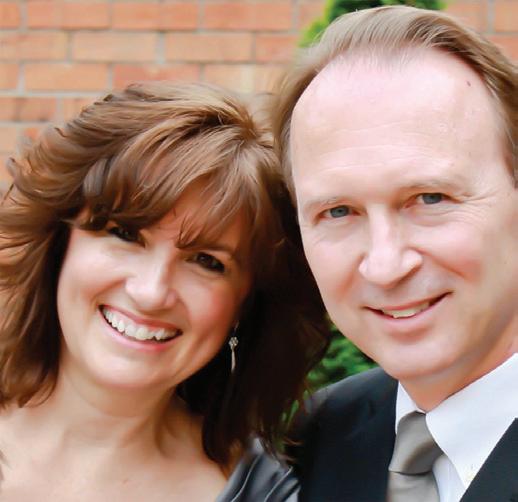
“I am excited to hear that Doug will be nominated for this national role, after experiencing his strong leadership here in Illinois as our state convention president and as longtime pastor of one of our leading churches,” said IBSA Executive Director Nate Adams. “Doug has all the qualities I would hope for in SBC leadership. He is a conservative, cooperative, humble, thoughtful, missions-hearted pastor who will lead both as statesman and by personal example.”
The 2016 Southern Baptist Convention will be held at the America’s Center in St. Louis June 14-15. The election for First Vice President is slated for the Tuesday afternoon business session.


Religious freedom remains under “serious and sustained assault” worldwide, according to a report from the U.S. Commission on International Religious Freedom. The advisory group is urging the U.S. State Department to add to its 10 worst offenders list the Central African Republic, Egypt, Iraq, Nigeria, Pakistan, Syria and Vietnam, for a total of 17 nations. “At best, in most of the countries we cover, religious freedom conditions have failed to improve,” Commission Chairman Robert P. George said. “At worst, they have spiraled further downward.”
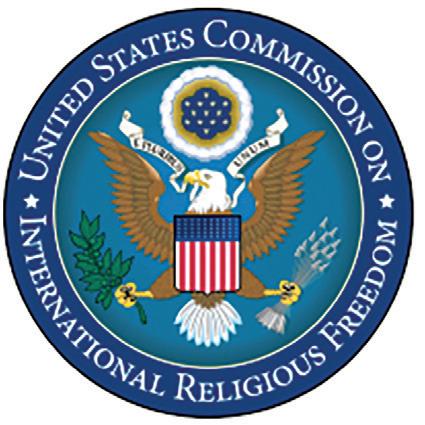
Springfield | Two replacements have been named for IBSA’s Rex Alexander, who is retiring after five years as Director of Men’s Ministry and Missions. Returning missionary Dwayne Doyle will fill Alexander’s post starting May 15. Doyle and his wife, Melissa, have been serving in Greece with the International Mission Board. They accepted IMB’s “hand-raising opportunity” to leave the field as part of an organization-wide reduction in force. The Doyles’ have three children, David, Darcy and Daisy. Doyle previously served on staff with the Kentucky Baptist Convention in missions education.
“We are concerned for all of the missionaries that have transitioned this past year due to the changes with the IMB, but this has been a blessing for the mission field here in Illinois,” said Mark Emerson, associate executive director of the Church Resources Team. “What a great opportunity it is for us to have an experienced missionary serving in our mobilization role.”
Two independent missionaries from the U.S. were murdered in Jamaica in April. One of them, Randy Hentzel, 48 (left), was a Southern Baptist and was supported in part by his SBC congregation, First Family Church of Ankeny, Iowa. The other man killed was identified as Harold Nichols, 53. Both men served with Teams for Medical Missions. They were checking on a construction project prior to the discovery of their bodies. Both had served in Jamaica since 2002. Hentzel is survived by a wife and five children.

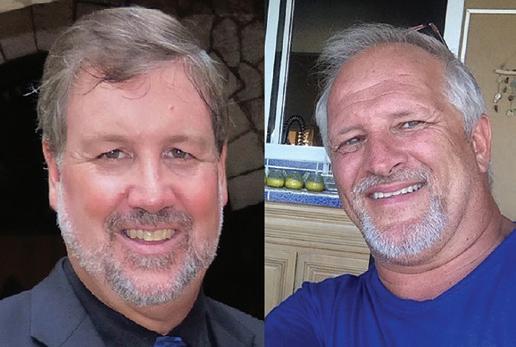
A religious freedom bill designed to protect clergy and others died in a Missouri House committee. “I am sorry to report that freedom suffered a severe setback today,” said Don Hinkle, editor of the Pathway newsjournal and public policy adviser for the Missouri Baptist Convention. SJR-39 was a narrowly written bill and according to its authors was a shield, not a sword. It would have prevented the state and local governments from imposing penalties on clergy, churches, religious organizations and some wedding vendors which, for religious conscience reasons, wish to not participate in a wedding that involves two people of the same sex or gender. After a contentious eight-month battle, a tie vote in committee prevented the bill from coming to the House floor and ultimately to the ballot box.
– RNS, Baptist Convention of Iowa, Baptist Press
Jim Weickersheimmer will serve as interim state director of Disaster Relief beginning June 1. He has been active in Illinois Disaster Relief for a number of years. In this capacity, Weickersheimmer will serve under
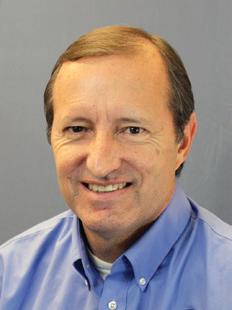
Doyle, handling relief callouts and training of volunteers which had been much of Alexander’s activity. A resident of Urbana, he will serve through the end of 2016, at which time the needs of the relief ministry will be evaluated.
“I have great confidence in Jim Weickersheimmer leading our ministry,” Alexander wrote to Illinois’ 1,600 trained DR volunteers. “I have great confidence in IBSA’s ongoing commitment to Disaster Relief ministry.”
Alexander is a Missouri native who had served churches in Missouri before joining IBSA in 2012. “Rex gave me my first real job in the ministry, so to be with him on his last official day is extra special,” Emerson said. “Rex will be greatly missed by IBSA.”
Alexander will be retiring to the metro St. Louis area.
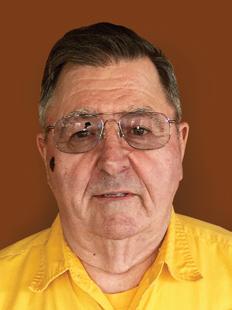
A treasured member of the IBSA family passed away April 23. Betty Walker, 89, was IBSA’s longest serving staff member, retiring in 1989 after 42 years of service.
IBSA staff reflected on Walker’s service after learning of her death. “Even before I met Betty Walker personally, I knew her as a bit of a legend at IBSA. It wasn’t just her amazing four decades of service, which is so very unusual by today’s standards, but also her reputation as a strong woman and leader in her own right that still echo in the hallways of IBSA today,” shared IBSA Executive Director Nate Adams.
She began working at IBSA as part-time bookkeeping assistant while still a college student. She would go on to serve as secretary to two executive directors—Noel Taylor and James Smith—and later become director of printing and mailing services. When Walker was first employed by IBSA, the association’s main offices were located in Carbondale. She was among the few support staff to make the move to Springfield when the current office building opened in 1971.
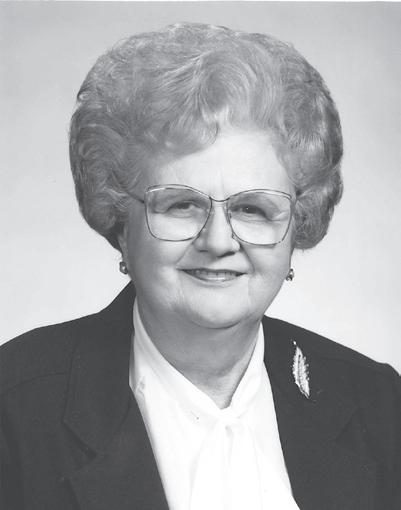
Sandy Barnard, who recently celebrated 30 years’ service to IBSA, remembered her time working with Walker. “Betty was loving and caring woman,” Barnard reminisced. “There was no mistake about what she believed and
how she felt. Even on my first day she welcomed me to the IBSA family and those first weeks she helped me learn what I needed for all of my printing and mailing needs. She was kind, considerate, but firm.”
Walker commented on her years at IBSA in an Illinois Baptist article announcing her retirement dated Nov. 2, 1988, “IBSA has been my life these years, it’s successes and disappointments have been mine.” She noted, “Illinois Baptists have faithful to me these 42 years.”
Walker will be fondly remembered by IBSA and its churches. “When I got to know her personally as an IBSA retiree, I always found a charming, witty, warm-hearted woman who was determined to give me both good-natured challenge and sincere encouragement at every opportunity,” said Adams. “IBSA is stronger today because Betty Walker invested so much of her life here. And though she retired decades ago, she will still be missed.”
More than one million people signed a petition by the American Family Association (AFA) launching a boycott of Target discount stores over their new restroom-use policy. The retailer posted an article on its corporate website in support of allowing transgender people to use restrooms designated for the opposite sex.

Target’s April 16 article titled “Continuing to Stand for Inclusivity” states, “We regularly assess issues and consider many factors such as impact to our business, guests and team members. Given the specific questions these legislative proposals raised about how we manage our fitting rooms and restrooms, we felt it was important to state our position.”
The statement came after state legislatures in Mississippi and North Carolina passed laws in early April restricting the use of public restrooms to members of the same sex. Illinois is one of 18 states that prohibits discrimination based on gender identity.
In the two weeks following Target’s declaration, YouGov Brand Index found the chain’s consumer perception dropped to an 8-month low. The survey reported the “percentage of consumers who would consider buying items at Target the next time they want to go shopping at a department store dropped from 42% to 38%.”
AFA said in a radio interview last week that the Christian group is testing the Target policy by sending men into the women’s restrooms to see if Target objects. “The chief concern of the American Family Association is the predators who will take advantage” of the policy by falsely claiming to be transgender, said Sandy Rios, director of Government Affairs.
Southern Baptist Theological Seminary President Albert Mohler addressed the boycott on his April 26 podcast calling the issue “complex” and noting that Target is most likely the first of many companies to make such statements. “Christians have to understand that in a fallen world, every aspect of an economy is fallen, and that means that there is no safe place to stand, there is no safe business in which to shop,” he said.
Even retailers that have favorable reviews from Christian groups such as Faith Driven Consumer, including Hobby Lobby and Aldi, deal with complicated networks of suppliers that have widely varying policies on family, gender identity and LGBT issues.
“Should Christians boycott Target?” Mohler said. “That’s a question that I do not believe has an answer….That is a matter for your Christian conscience.”
Just a month ahead of the SBC’s annual meeting, the question has been raised whether Southern Baptists should join a boycott of Target. The denomination’s last boycott was of the Disney organization in 1996, which lasted eight years. Baptist Press reported the Southern Baptist Convention has positioned itself well to address the topic going forward with or without an official Target boycott.
The SBC has already spoken to transgenderism in a 2014 resolution on transgender identity.
Messengers approved the resolution which stated, “Our love for the Gospel and urgency for the Great Commission must include declaring the whole counsel of God, proclaiming what Scripture teaches about God’s design for us as male and female persons created in His image and for His glory.”
The resolution condemned “acts of abuse or bullying committed against” transgender individuals. It also expressed opposition to “efforts to alter one’s bodily identity (e.g., cross-sex hormone therapy, gender reassignment surgery) to refashion it to conform with one’s perceived gender identity.”
Baptists in Illinois followed the June 2014 SBC resolution on gender identity with a similarly worded statement approved by messengers at the IBSA Annual Meeting in November 2014.
The media frenzy over cross-gender restroom use and other transgender issues has caused some to ask, How many transgender people live in the United States? The most often cited estimate is 700,000 people, or about 0.2 to 0.3% of the population—in other words, 2 or 3 out of 1,000 people consider themselves to have the wrong biological gender.
The restroom debate came as Merriam-Webster added new words to the dictionary. First there was Ms., now there’s “Mx.” A person who is not a Mr., Mrs., Miss, or Ms. might be a gender-neutral Mx.

“Genderqueer” is a new label for those whose sexual self-identity does not cleanly qualify as male or female.
And there’s “Cisgender” from the Latin word “cis” meaning “on this side of” rather than “trans” indicating on the other side. Merriam-Webster added the term that “describes a person whose gender identity corresponds to their sex at birth” for people who need to say they are not transgender.
– with info from Baptist Press, AFA, Washington Post
Decatur Public Schools sent a letter to parents of fourth grade students at an elementary school notifying them of accommodations being made for a student transitioning from male to female. This included using the same restroom facilities as female students, prompting controversy. Also, a transgender student at Williamsville High School who was born female but identifies as male will now be able to use the men’s room. The ruling resolved a complaint filed in October with the Illinois Department of Human Rights. The student objected to using the single-use restroom the local district provided.
Former Missouri State University student Andrew Cash is suing the college for expelling him from the school’s counseling program based on his opposition to same-sex relationships. Cash, who began his master’s in counseling in 2007, was expelled from the program in 2014 for expressing his views on counseling homosexual couples on relationship issues. He told administrators he would counsel homosexuals suffering from depression and anxiety, but would refer cases regarding homosexual relationships to another counselor.

Tensions are rising between LGBT athletes, the NCAA and its religious schools. Nearly 60 religious colleges have sought or received Title IX waivers providing religious freedom protections, but more than 80 advocacy groups are pushing the NCAA to expel schools which they view as discriminating against the LGBT community.
ESPN edited out footage from Curt Schilling’s legendary “bloody sock” game May 1 when replaying a 2010 documentary about the Boston Red Sox’s 2004 World Series comeback win. The cut in “Four Days in October” came less than two weeks after the network fired Schilling for publicly objecting to laws allowing men who identify as transgender to use women’s restrooms. ESPN claimed a live event scheduled to run just before the documentary ran over time, and the network needed to cut a segment from the film so it would end on time.
– WAND-TV, Baptist Press, USA Today, The Federalist
Outgoing SBC president Ronnie Floyd explains why race is a key issue for the upcoming annual meeting.
When I was elected president of the Southern Baptist Convention in June of 2014 in Baltimore, little did I know God would take me through the open doors of addressing racial challenges in America.
While racial unrest already existed in our nation, it was not until August 9, 2014, and the tragic death of a black teenager named Michael Brown, shot and killed by a white police officer in Ferguson, Mo., that we began to see this racial unrest erupt like a volcano across our nation.
From my very first press conference as the newlyelected president of the SBC, I began calling upon Southern Baptists to join me in praying extraordinarily and passionately pursuing the next Great Spiritual Awakening in America. When the Ferguson tragedy occurred, God burdened my heart immediately, adjusting my path of understanding.
Politicians, corporate leaders, educators, religious leaders and pastors in America rarely initiate and move forward a positive agenda that leads to racial unity. We should seek to change this.
While this path is still toward the next Great Awakening, God revealed clearly to me and anyone else that has been spiritually alert in America that one of the greatest sins in our nation today is the sin of racism.
The SBC will have a ”National Conversation on Racial Unity” Tuesday, June 14, in St. Louis, featuring Jerry Young, president of the National Baptist Convention, USA, and Marshall Blalock, pastor of the First Baptist Church of Charleston, S.C.
– From ronniefloyd.com
There aren’t many aspects of the current national election that should be emulated at the upcoming Southern Baptist Convention. But here’s one: Messengers in St. Louis would be well served by a candidates’ debate of sorts—a public discussion among those running for SBC president.
There are several reasons to add this kind of discussion to the convention schedule, starting with the issues poised to be central to the 2016 meeting. The key topics Baptists are beginning to talk about now will be very significant in how the SBC moves forward on matters like supporting missionaries, doing evangelism well, and shaping the denomination’s identity in a post-Christian culture.
Last year’s convention used panel discussions to offer various perspectives on pressing issues. The format could translate easily to a conversation about what each candidate sees as the key issues facing the SBC, and why they feel they’re qualified for the job.
Furthermore, each of the announced candidates has proven they’re willing to work with the larger Baptist family to accomplish shared goals. David Crosby worked with other pastors in New Orleans to help rebuild the city following Hurricane Katrina. Steve Gaines was part of the committee that
revised The Baptist Faith and Message in 2000. J.D. Greear has shared platforms and panels with a variety of thinkers from across the Convention.
Surely they’d be willing to share their ideas about the SBC and its future if it meant more messengers (voters) would have a clearer picture of who they believe can lead it best.
Blogger and pastor Dave Miller recently noted what is perhaps the most practical reason for a debate: Everybody’s talking about this stuff already.

Miller advocated in a March post on SBC Voices that Baptists break with tradition and encourage campaigning for the office of SBC president, with one of his main reasons being that “politicking” has always been a part of the process, just a behind-thescenes part. With the rise of social media, Miller wrote, “we have the opportunity to hear from our candidates.”
Yes, prior to the Convention, we can hear from the candidates through one-on-one interviews and podcasts. But let’s go a step further. Let’s have a civil, helpful discourse in St. Louis on the state of the SBC, its current challenges, and how each candidate would direct the denomination toward fulfilling God’s Great Commission to make disciples.

Five hundred women met April 29-30 in Decatur to learn what it means to have “everyday faith.”
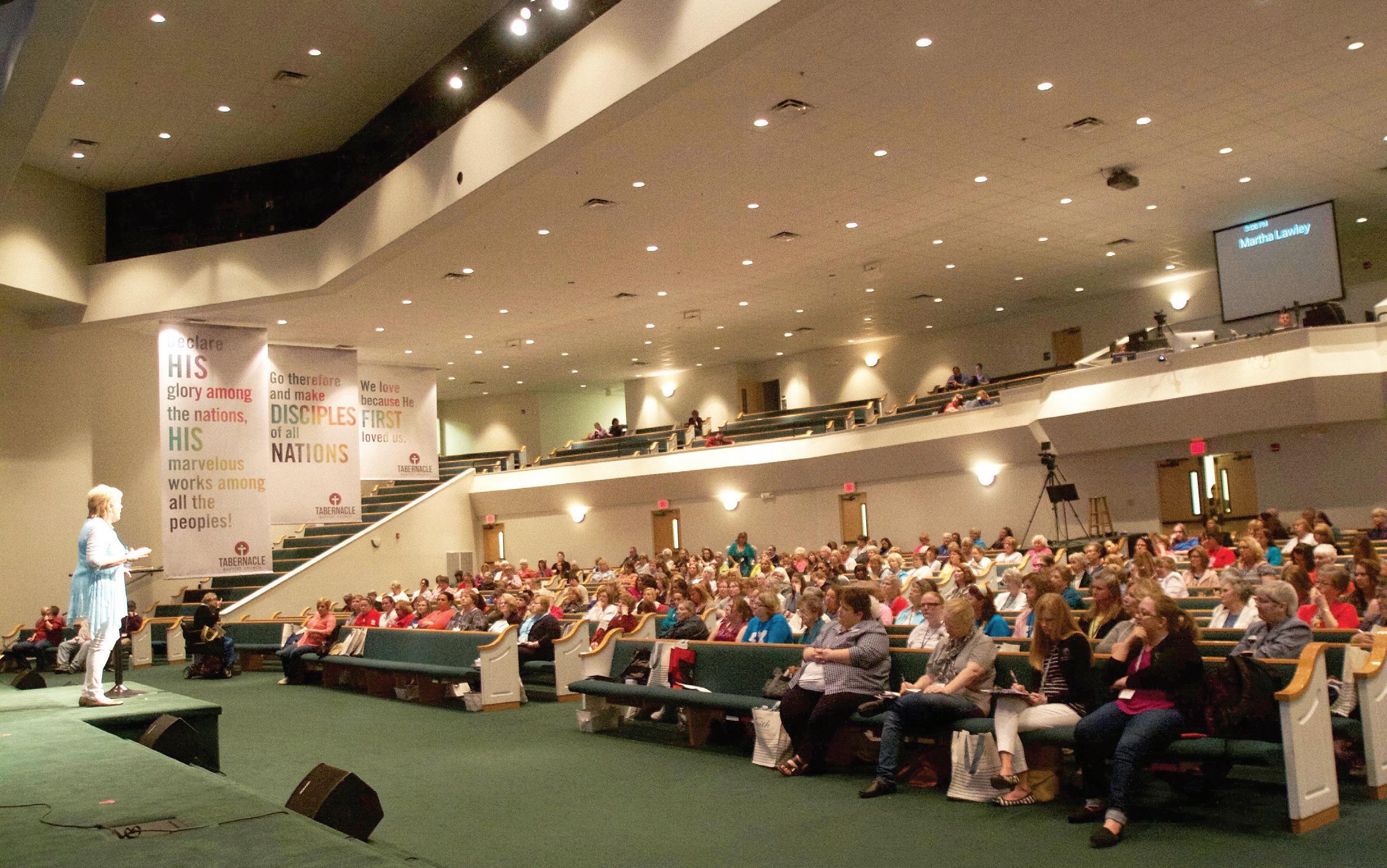
The answer: It’s all about intentionality, speakers and breakout session leaders told women gathered for IBSA’s annual Priority Women’s Resource Conference, held at Tabernacle Baptist Church. The message of the gathering, which doubles as the annual meeting of Illinois Woman’s Missionary Union, was live like you mean it, from the innermost parts of your heart, to how you view other people, to how ready you are to accept God’s call to go to the faraway places.
“What is the most inescapable call on your life? On my life?”
Kathy Litton challenged women in Decatur with a difficult question, and a difficult answer.
“It is dying to self,” said Litton, the North American Mission Board’s national consultant for ministry to pastors’ wives. And, she continued, it’s Jesus’ recurring theme throughout Scripture, so apparently, it’s not optional. But the spread of the gospel depends on it.
“Self-denial is the very essence of discipleship,” Litton said, adding that the issue can be detrimental to living a gospel-centered life.” Certain “heart idols” tempt us all—comfort, family, acceptance. But “Jesus made it pretty clear that disciples would die to themselves.” In Decatur, in large-group sessions, breakouts, and hallway conversations, women talked about how everyday faith can be transformative—in their own lives and for others—when it starts with denying self and taking up the cross of Christ.
Most of us can function pretty well within the walls of the church, Litton said during a Priority breakout session. But it’s a little more challenging on the outside. She encouraged women to find ways to extract gospel moments from everyday life.
“We have to re-orient ourselves to a needy, lost world around us,” Litton said. She urged women to reject passivity and accept responsibility, and to develop “gospel IQ.”
Continued on page A-8
We need to be reminded of the gospel everyday, said Priority speaker Martha Lawley, because we forget it everyday. The LifeWay speaker told women in Decatur the best way to share the gospel with others is to preach it to ourselves.
“When we huddle with Christians all the time, our hearts get hard for the lost,” she said, quoting a recent sermon by her husband, Alabama pastor Ed Litton. “Gospel intelligence recognizes that I’ve got to learn to communicate [the gospel] in diverse spiritual moments.” And apply it to real life.
Melanie Nelson and her husband, Phil, the pastor of Lakeland Baptist Church in Carbondale, have spent years reaching out to international college students so that they might hear and respond to the gospel. She understands well the struggles of fitting into a culture different than your own. The missionary kid’s bumpy transition to the U.S. as a college student in the 1970s included trying to bargain for blue jeans at J.C. Penney as she had at the market stalls on the mission field.
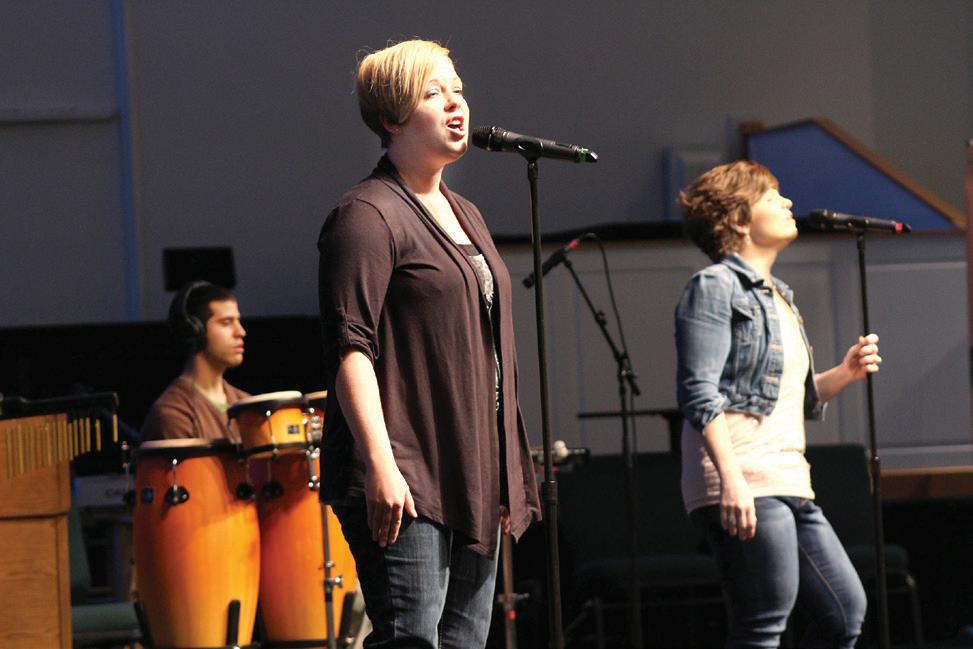
There are 1.1 million international students in the U.S., Nelson said, and just three in ten will ever enter an American home. That’s why reaching across cultural barriers to share the gospel requires a lifestyle change, said International Mission Board missionary Bonita Wilson
Wilson, who recently accepted the IMB’s voluntary retirement incentive, shared a similar statistic: 84% of internationals are never invited into an American home. We have to step out of our comfort zones, she said in her breakout session on “Crossing Cultural and Religious Barriers for the Gospel,” one of 38 offerings at the Priority Conference.
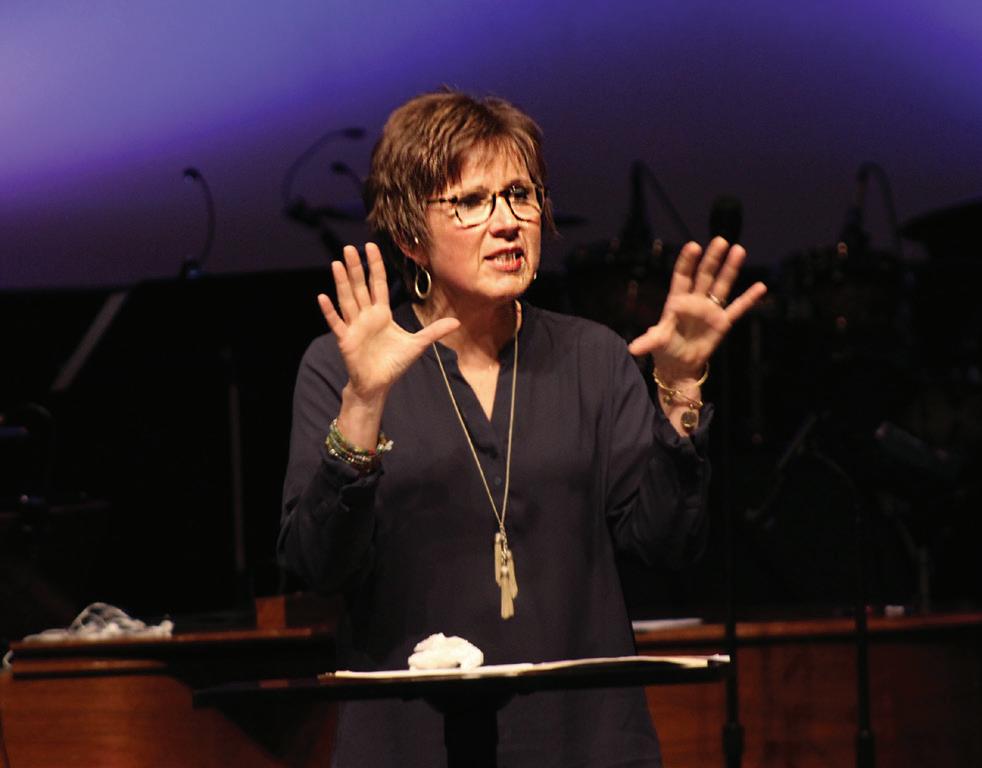
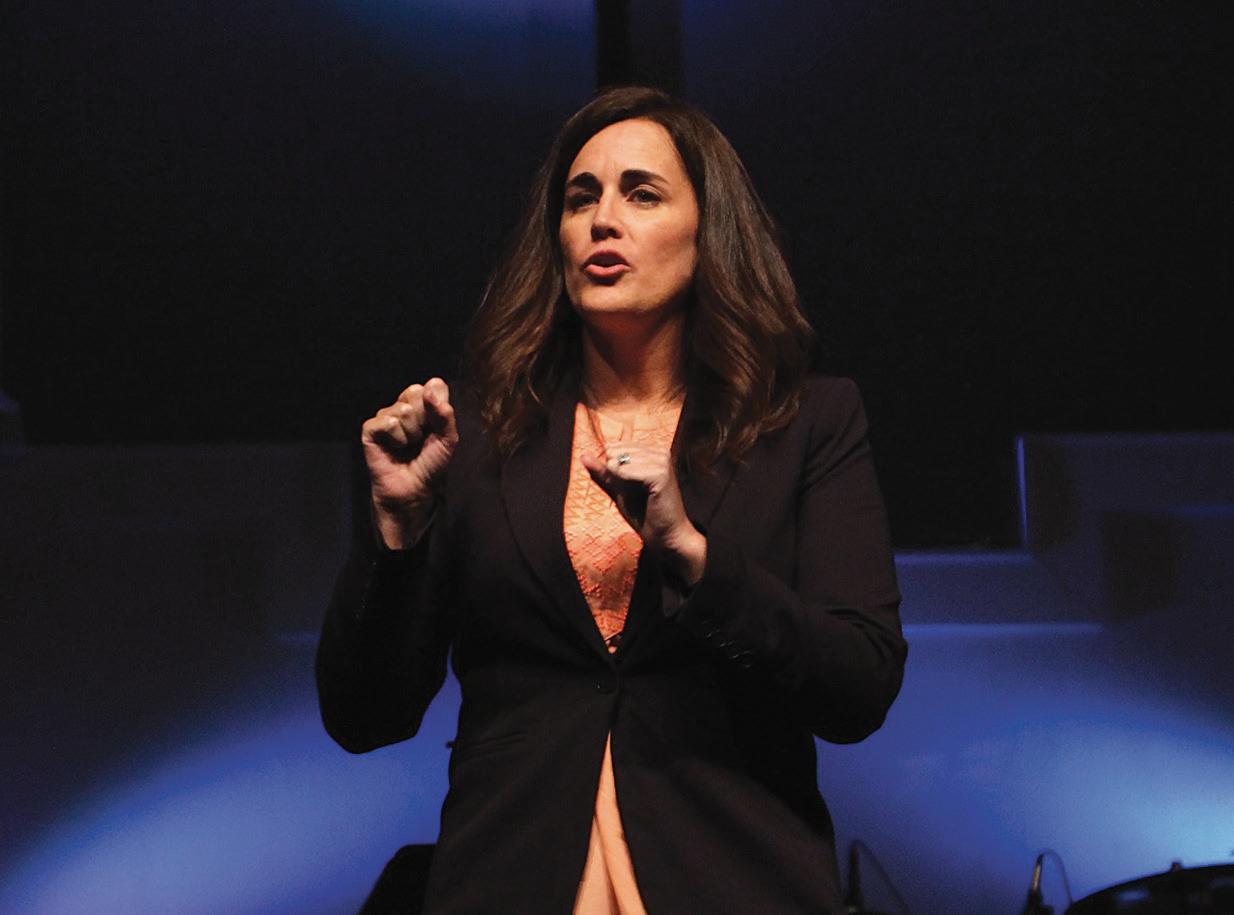
She gave practical advice for being intentional about reaching people: Those new to the U.S. are most open to new friends in the first six months. After that, they merge into their people groups. Invite them into your home. Be a faithful friend. And speak spiritually.
“From day one you need to be spiritual in what you say,” Wilson said. “A Muslim won’t think you’re serious about your spirituality if you wait three months to say the name of Jesus.”
Gail Faulkner, a pastor’s wife from Bethalto, shared with Priority attenders how on a recent mission trip to South Asia, she saw spiritual darkness like she’d never seen before. But there was also pure faith, worship, and prayer.
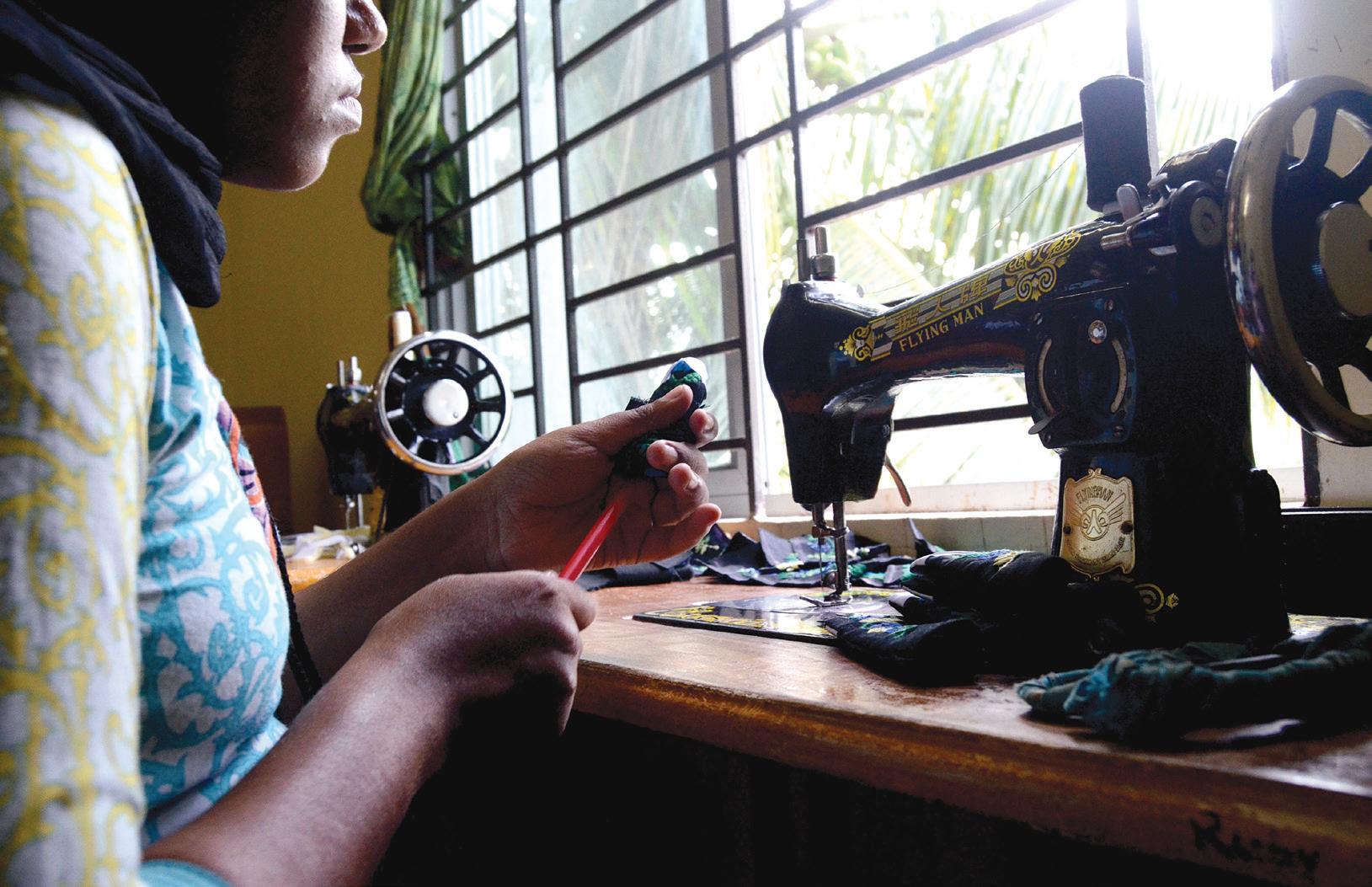
Her mission team, which included IBSA’s Carmen Halsey and five other women
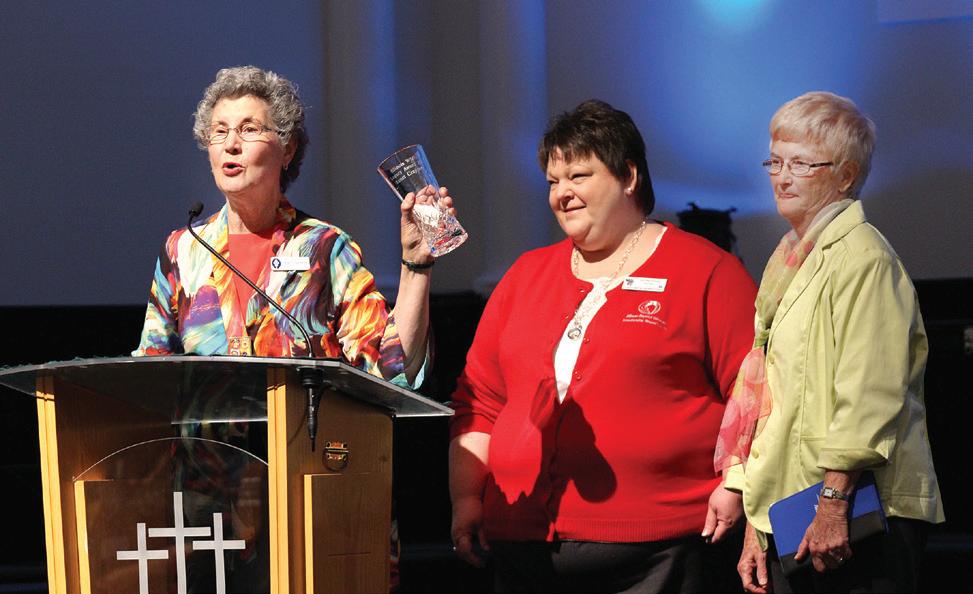
from Illinois, partnered with believers and missionaries in the country to share the gospel story in villages. Faulkner said the experience showed her the New Testament isn’t just an ancient book. Serving in South Asia on Easter Eve, she said, “it was no longer just a story.”
‘All of us are sent’
When the South Asia team returned to the U.S., said Halsey, IBSA’s director of women’s ministry and missions, her experiences in South Asia bolstered her commitment to share the gospel at home. Encouraged by the team’s interpreters’ untiring desire that people in their villages might come to know Christ, she came away with a renewed sense of being chosen and called by God.
As Litton reminded women in her breakout session, “All of us are sent. All of us. And we need to understand that God initiated ‘sentness,’ if that’s a word, by sending Jesus.”
God authored the “viral” method of getting the word out, she said, by using his people.

“Ordinary people who are transformed by the extraordinary power of the Holy Spirit would share the goodness of the gospel.”
Everyday faith, with life-changing results.
What is going on? This is the sentiment I’ve heard from many friends and family, especially as they survey this increasingly crazy election season. I have to admit that I’ve been more than a bit distressed myself lately. How is it that the worst kind of leaders continue to win and those who have accomplished records, who lead with dignity, who genuinely serve the common good don’t seem to win office?
If you love your neighbor, you can’t help but be discouraged by the state of our world. Or perhaps you are not troubled by this election season, but by war, terrorism, economic concerns, relational issues, crime, cancer or some other concern that has you wondering just what is going wrong in the world.
I’m a naturally optimistic guy, but last Sunday I walked into church feeling less than optimistic. But it was worshipping with my brothers and sisters in Christ that helped move me from despair to faith. Specifically, it was the third verse of the hymn “The Church’s One Foundation” that I’ve sung since I was a child:
‘Mid toil and tribulation, and tumult of her war, she waits the consummation of peace forevermore, till with the vision glorious her longing eyes are blest, and the great church victorious shall be the church at rest.
I’ve attended church my whole life and have always found comfort in gathering with God’s people to worship Christ as Lord. But the older I get, as the trials of life and the troubles of the world press in on me more, as I see with fresh eyes the deep brokenness and the anguish of a world beset by the curse of sin, I’m comforted, every week, by simply going to church.
I’m comforted because when we go to church, we are doing more than simply gathering with like-minded people around a set of shared values. What we are doing when we gather together is declaring truth to the world and
to ourselves, that Christ—not the temporary powers of this world, not the movements, the media, the message-men—is sovereign over all things. We worship the One who was raised from the dead and raises us from the dead. We are refreshed again, with the eschatological hope that his kingdom is coming soon and that Christ is our only hope to renew and restore all things.
“The Church’s One Foundation” is a song of victory. Christ is building his church and is gathering his people from every nation, tribe and tongue. This he promised and this he will do. The church will endure, even amongst outside pressure and inside sin. Dangerous and destructive leaders can hurt God’s people and can
be destructive to human flourishing, but they can’t put Christ back in the grave, they can’t keep Christ from building his church, and they won’t stop Christ from gathering history to himself. It is this truth, not the election returns, that gives us our hope.
This is why the word from the writer of Hebrews is so prescient today:
“And let us consider how to stir up one another to love and good works, not neglecting to meet together, as is the habit of some, but encouraging one another, and all the more as you see the Day drawing near” (Hebrews 10:24-25, ESV).
Troubling times should drive us to worship, to gather with God’s people on Sundays and be reminded afresh of the grand gospel story. Church, for true believers, is not just a temporary emotional salve, but a reminder of the reality of who we are and where we are going.
I’ve found this reality to be true my whole life, but even more so as I’ve gotten older: We should work to build good communities, we should shape what happens in the public square, because we love our neighbors and we care about human flourishing, but what happens on Sundays is the most important thing in the world.
Daniel Darling is vice president for communications for the Ethics and Religious Liberty Commission. This column first appeared on his website, danieldarling. com, and is reprinted by permission.
QBilly plays the piano. He has for years. The church has had a kind of “don’t ask, don’t tell” policy about Billy. Now his friend has started attending and sits with Billy’s mother, who is a prominent member. Is it time to talk with Billy? Or the deacons?
ADon’t pass off the difficult tasks that a pastor faces to your deacons! You are not only better equipped to handle these types of situations, but you have time to study and also prepare solid biblical answers as to why the church takes a stand on certain issues.
Confrontation is never easy, and there is always the risk of collateral damage. However, you are the under-shepherd of the church and have a responsibility of protecting the flock. To refuse to address what you know (and others also know) is a sin issue with “don’t ask, don’t tell” is simply wrong.
Be loving, fair, and biblical in your approach, but be determined about what action needs to be taken as you confront the young man, and then be firm in your determination. Be sure you have a godly church leader with you in prayer support.
QThere’s a Cubs fan in our church. When he wears his Cubs jacket, others give him a hard time. You’d think he’d be used to it by now, but I think it makes him feel like an outsider.
AThe Cubs fan needs to be proud of the team he supports and understand that the only reason others are ribbing him is because they know it gets to him. On the other hand, those who are poking fun must remember the Bible teaches we are to avoid offending a brother or sister, and should stop making any possibly hurtful remarks.
My advice would be to attend a game together, perhaps as a men’s event of the church, when the rival teams are playing each other. Enjoy the travel, the fellowship and celebrate whichever team wins. The group might just end up being the best of friends who finally discover the joy of being Christian brothers who agree to disagree—agreeably!
Some people thought First Church was too political.
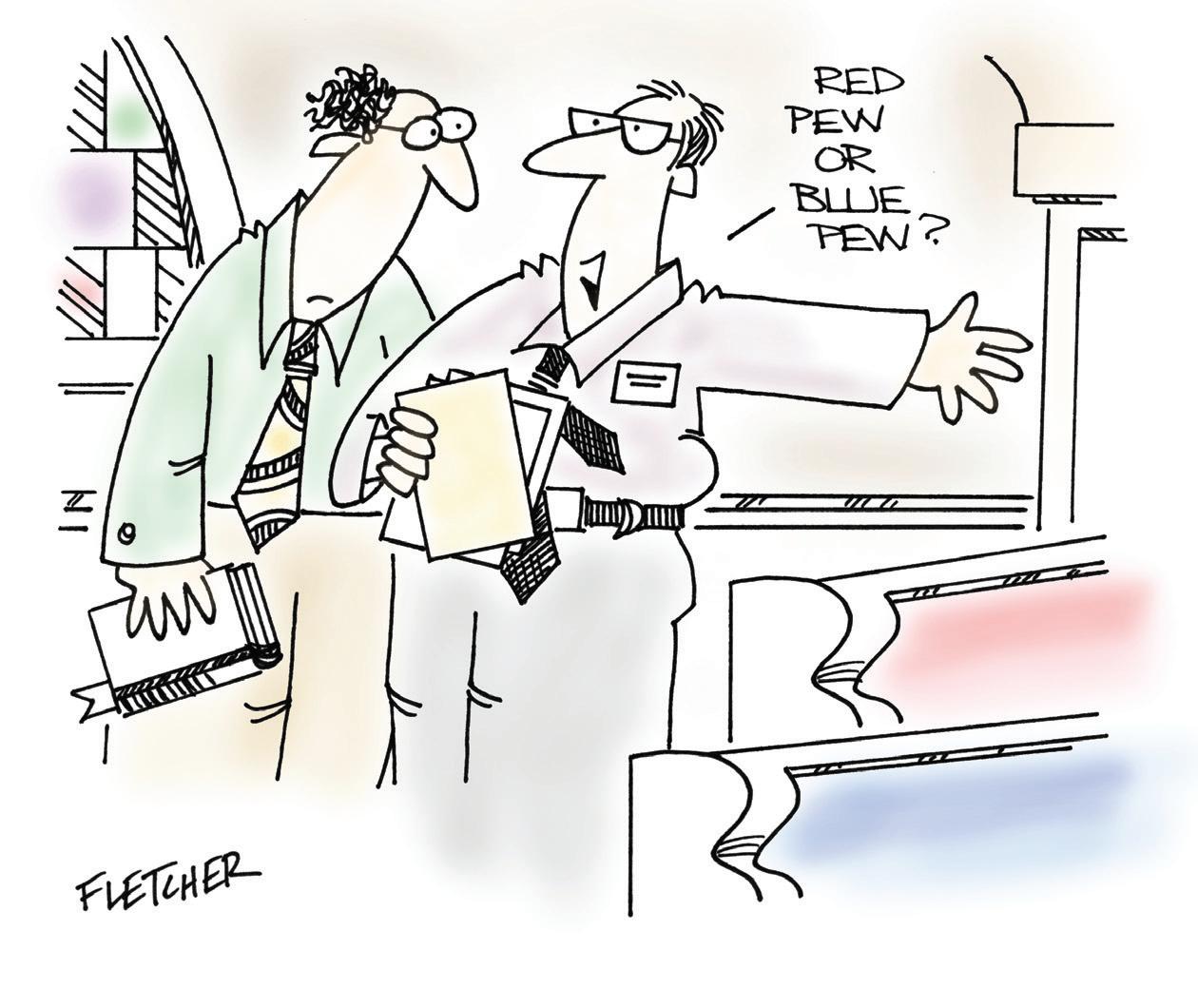
Pat Pajak leads IBSA’s Church Consulting Team. He has led churches of all sizes across Illinois. Send your questions for Pat to Illinois Baptist@IBSA.org.
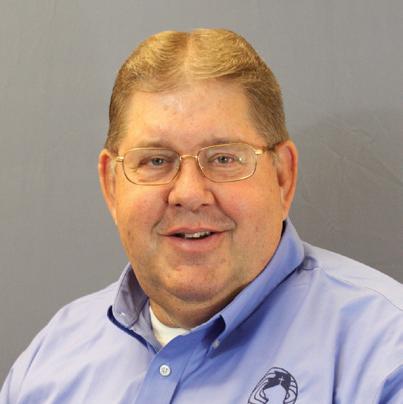
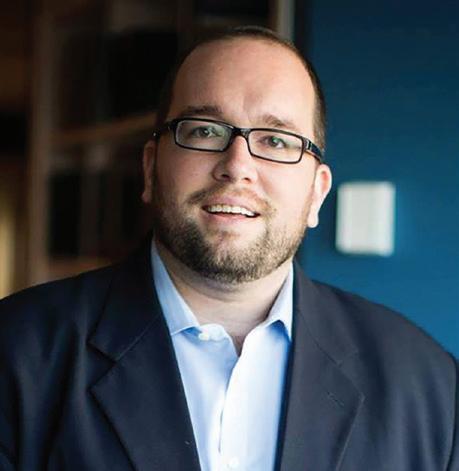
In a painful and disappointing season, I have needed more than an emotional salve.PAT PAJAK
Greg Bittle is the new pastor of First Baptist Church, Zeigler. He and his wife, Janice, live in Jonesboro. Bittle has pastored churches in Grand Tower and Dongola and is currently the Senior Chaplain for the Illinois Department of Corrections in Vienna.


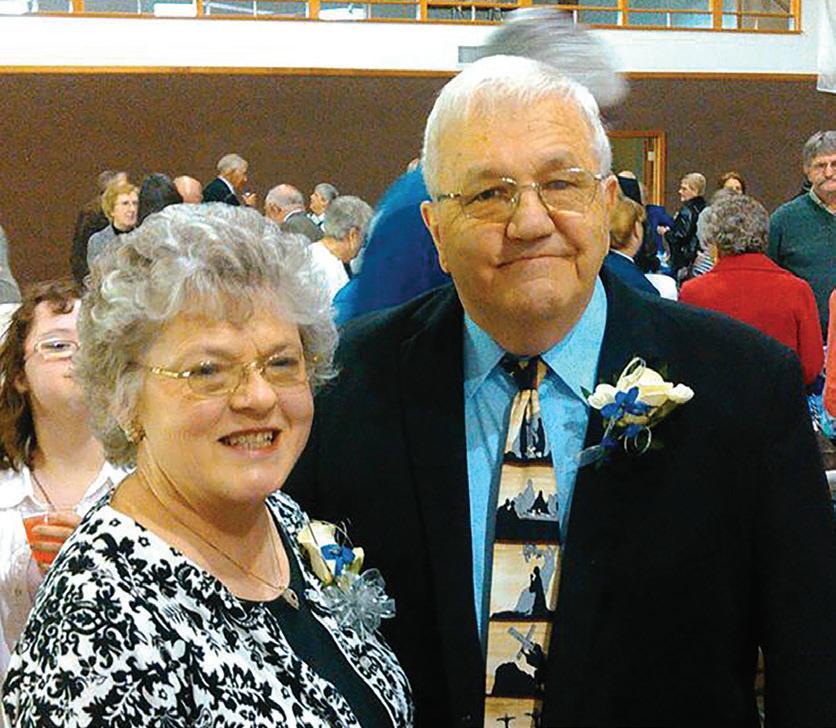
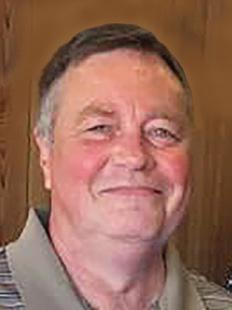
East Central Baptist Association has called David Hutton as director of missions. Hutton and his wife, Shannon, will relocate to Illinois from North Carolina at the beginning of June. They have served as International Mission Board missionaries, and David has experience as an associate pastor and pastor. The couple has two college-aged children.
Nancy Lee (James) Sheppard, 80, died April 14 at her home in Liberty, Mo. She served with her late husband, Carl, at several Illinois churches, including Winstanley, Fairview Heights; Westview, Belleville; and First Baptist, Springfield. Carl also directed IBSA’s Church Music Department. Nancy Sheppard is survived by her daughters, Cindy and Kathy; one sister; and two grandchildren.
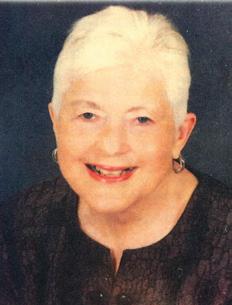
Adron Robinson, pastor of Hillcrest Baptist Church in Country Club Hills, has earned the Doctor of Ministry degree from Northern Seminary in Lombard, Ill. Robinson, who has led Hillcrest since 2009, previously received the Master of Divinity degree from Northern.
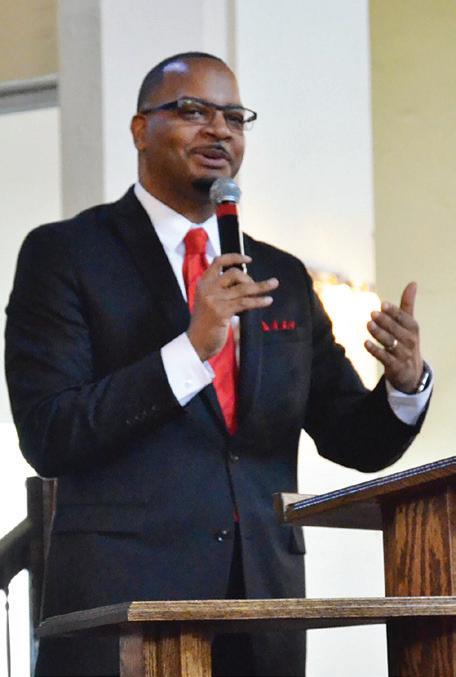
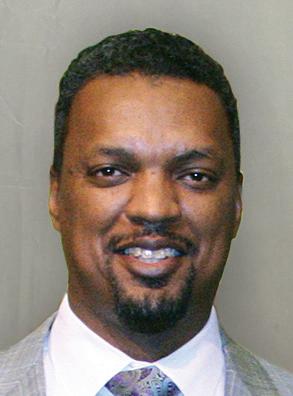
The churches of Salem South Baptist Association celebrated retiring Director of Missions Henry Hall and his wife, Carolyn, March 20 with a retirement party at Belle Rive Missionary Baptist Church. Hall served more than 13 years with Salem South, and previously led Bay Creek and Alton Industrial Associations.
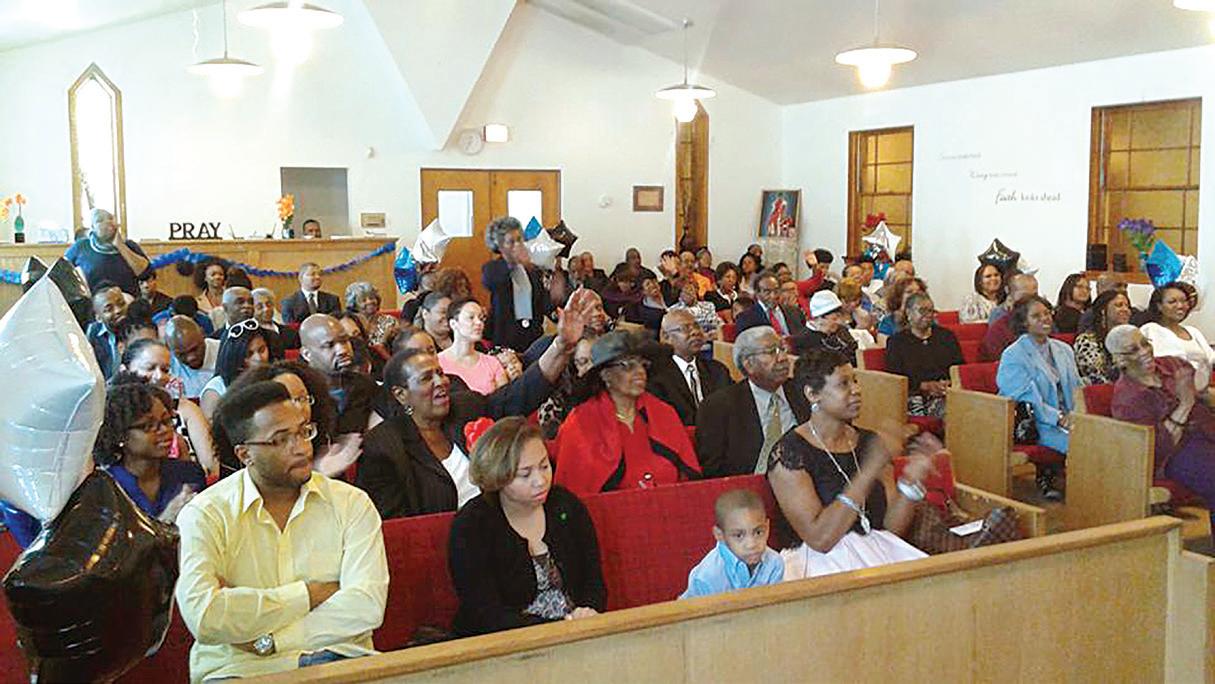
Harmony Community Church in Chicago recently completed a “Raise the Roof” fundraising campaign to repair the church’s leaking roof and structural damage. Using an online fundraising tool and social media updates, the church raised much more money than the $50,000 needed for the roof. The extra funds will be used for new gutters and to repair damage to the sanctuary, fellowship hall, and church office, according to Harmony’s fundraising webpage.
“This is an amazing accomplishment for our church and community,” Pastor James L. Brooks posted on Facebook. “The synergy of giving has been contagious. Our hope has been renewed and our faith has been increased.”
The Connection Community Church in Chicago celebrated its 10th anniversary in April. In 2006, the church plant started out meeting at a local restaurant and in Pastor Ron Gray’s basement, eventually moving into a church building they purchased in 2012. Gray told the IB in 2013 that church planting is a risky endeavor because you can work at it for years and still be unsure of how it will all work out. “The secret to this thing that I’ve found is not so profound,” Gray said, “but you have to keep showing up.”
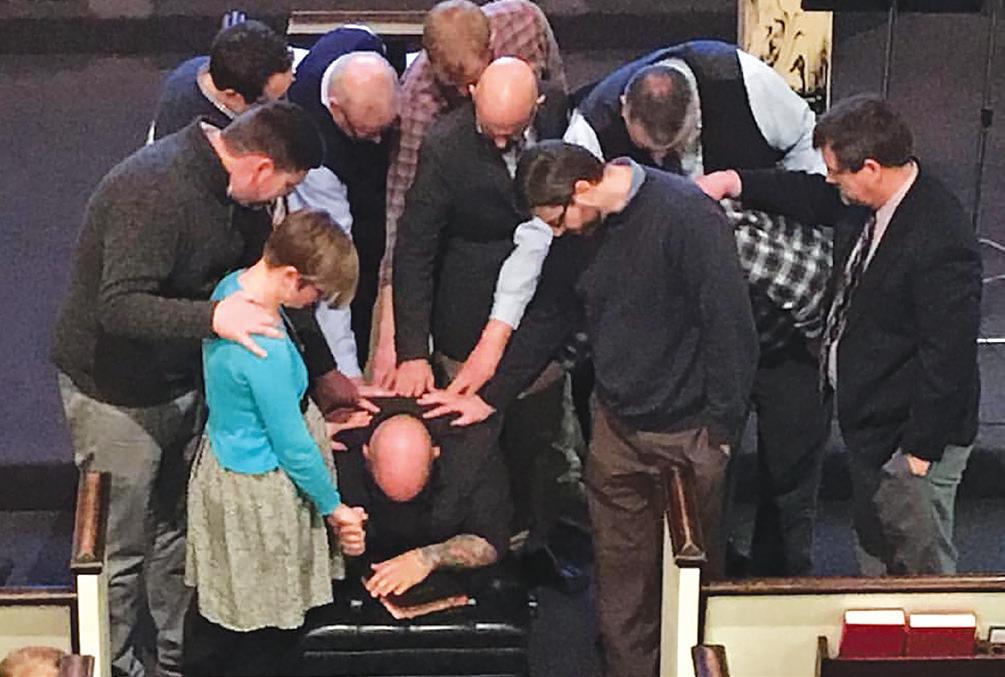
Dave Andreson, pastor of Resurrection City Church in Chicago, was ordained April 10. Andreson is planting RCC in the neighborhood of Avondale with his wife, Kirsten, and their children. The church is building relationships in Avondale through monthly cookouts and a partnership with a local school. Andreson speaks often of “gospel doorknobs”—opportunities to share the gospel with people who don’t yet know Christ.
NeTworkiNg Find more information on ministry positions at IBSA.org/connect
Franklin Baptist Association seeks a bivocational director of missions. Send resume and letter concerning your desire for this position to Franklin Baptist Association Office, Re: DOM Search Committee, 105 S. McLeansboro St., Benton, IL 62812, or fbamc@frontier.com.
Crosspoint Church in Edwardsville seeks an interim pastor. Resumes and references will be accepted until June
1. Send to Crosspoint Church, Attn: Search Committee, 4539 Wanda Rd., Edwardsville, IL 62025.
Bautista Primera Iglesia la Villita is seeking a 15-passenger van. Contact Pastor Vicente Garcia at (708) 624-0042 or vinmgarciajr@yahoo.com.
Send NetworkiNg items to AndreaHammond@IBSA.org
First Baptist Church, New Baden $300 $450
Higher Ground Baptist Church, Midlothian $2,500 $2,501
LightHouse Fellowship, Frankfort $1,200 $2,574
New Beginnings Baptist Church, Girard $1,650 $1,804
Wisetown Baptist Church, Greenville $1,200 $1,535
June 11
Crossover St. Louis
What: Outreach projects in Illinois and Missouri prior to the SBC Information: www.namb.net/crossover. Go to meba.org/crossover-st-louis-2016 for info on Illinois projects.
June 12-15
Southern Baptist Convention and Pastors’ Conference

See Special Section B Information: sbcannualmeeting.net
June 17-18
Who: Dads & lads of all ages
Where: Lake Sallateeska and Streator Register: IBSA.org/kids
What: “Our Amazing Race,” a week-long camp experience for kids and teens
June 19-23: Grades 3-6, 7-8; Lake Sallateeska

June 27-July 1: Grades 3-6, 7-12; Lake Sallateeska
July 5-9: Grades 3-6; Lake Sallateeska
July 18-22: Grades 3-6, 7-12; Streator Register: IBSA.org/kids

June 28-July 2
What: Leadership training and discipleship for Christian students who have completed grades 6-12
Where: Greenville College, Greenville, Ill. Register: IBSA.org/students
July 11-15
Summer Worship University
What: Training in church worship, art and discipleship for students in grades 6-12
Where: Hannibal-LaGrange University, Hannibal, Mo. Register: IBSA.org/students
July 24-29
ChicaGO Week
What: Students in junior high through college serve alongside church planters in Chicagoland
Where: Judson University, Elgin, Ill. Register: IBSA.org/students
QMy husband and I are just starting to get control of our finances, but we have a problem. My dad has a habit of expecting us to buy things for him. I know he has money, but anytime he knows we’re going to the store, he gives us a list of things he wants. If he’s with us, he just throws things in the cart and expects us to pay. What can we do?
AI know you love your dad, but he sounds like the kind of guy who doesn’t really respect boundaries. And these kinds of folks, as a rule, don’t like it when they’re suddenly confronted with them. Regardless, you need to have a firm but loving talk with your dad. Let him know how much he means to both of you, but remind him that you and your husband are working hard to get into better financial shape. This means you can’t spend more than is absolutely necessary. If he just needs one or two small things, that’s not such a big deal. But you’re not obligat-
ed to pay his way just because he’s your dad.
Like I said, he may not like this conversation. He may fuss and throw a little fit, but at that point it becomes his problem, not yours. Chances are he’ll come around in a week or so, and after he gets over the embarrassment of it all, everything will be all right again.
Talk to him in a kind, respectful way. If you feel you can’t stand up to him alone, ask your husband to lend support or put a voice to your wishes. It’s important that you’re both on the same page with this issue.
Financial advisor Dave Ramsey is a prolific author and radio host.
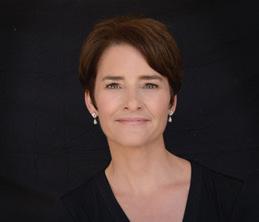
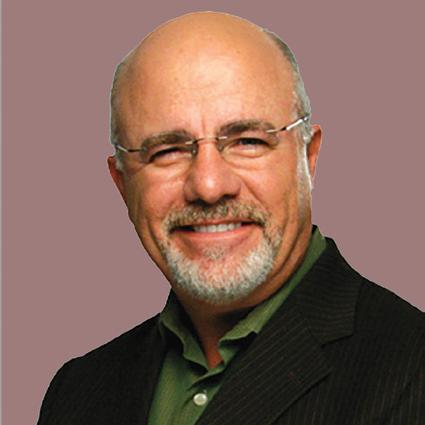
During seminary, I had the opportunity to pastor a church that one of my professors had served when he was in college. The church spoke highly of his ministry there. Curious about his leadership, I pulled out the business meeting minutes from the years he had been pastor. I read through them and noticed that the brief time he was there seemed uneventful—until the first business meeting after he moved away. There was one item of business: a motion to remove the Ping-Pong table he had placed in the basement of the church. The decision was unanimous!
“Brothers, my heart’s desire and prayer to God concerning them is for their salvation!” (Romans 10:1).
landscape Illinois: 33rd most religious state


of adults are “highly religious” on Pew’s index
STEPHEN WILLIAMSPeople will tolerate most anything when they love you as a leader. But will they adopt change you propose?
The simplest change model I know is the Lewin-Schein model. It has three basic steps:
1. First, an unfreezing, where permanent attitudes, structures and ways of doing things are thawed out so that change can occur.
2. A sense of urgency must be mutually accepted. Then, change occurs in the organization.
3. Finally, refreezing, where the change is permanently ingrained into the new experience and culture of the changed church.
My professor had not had time to lead the church to the point where the last stage had occurred. As soon as he was gone, the Ping-Pong table and the change it represented was removed!
So how do you get people to the refreezing stage?
Most important, I think, is that the leader must discover and cultivate change within a mutually accepted vision in the second stage. The community must arrive at a consensus. It cannot just be an expression of strong will on the part of a leader who attempts to simply push the change in place. The hard work of joining the people in a process that leads to a mutually agreed upon purpose opens the possibility of moving to the last stage.
Leadership is joining the people on a pilgrimage to agreed upon actions clothed with a unified passion.
And then it starts all over again, because to be alive is to grow and to grow is to change.
Stephen Williams is pastor of Simpson Missionary Baptist Church and an IBSA zone consultant in southern Illinois. He previously served as dean at Mid-Continent University in Mayfield, Ky.
After Paul’s conversion, he sought out his fellow Jews to proclaim the good news of Jesus. Paul realized that knowing Christ and being found in Jesus was more valuable than anything else. There were those who believed in Jesus and started following him, however, many more rejected the truth that Paul preached. Even in Israel’s misguided zeal for God, Paul wanted to see them saved, and he prayed to that end.
say religion is very important in their lives
say they attend worship services weekly
say they pray daily
KEVIN CARROTHERSIs my desire and prayer for my lost family and friends to be saved? My immediate response is a resounding, “Yes!” On a daily basis I bring before the Lord a number of individuals for salvation, beginning with my own children. But wait! Upon further reflection, I recall two childhood friends for whom I prayed for years, but somehow have failed to pray for them recently. “Lord, forgive my negligence.”
How long shall we pray for the lost? We pray until they are rescued from sin’s deathly grip. How shall we pray for them after they are rescued? We pray for them to pursue holiness, to grow in the grace and knowledge of the Lord Jesus Christ, and to follow the leadership of the Holy Spirit.
What is your heart’s desire? For whom are you praying to be saved?
PRAYER PROMPT: Father, make it our heart’s desire to be burdened for the lost people around us. Amen.
Kevin Carrothers serves as pastor of Rochester FBC and IBSA President.
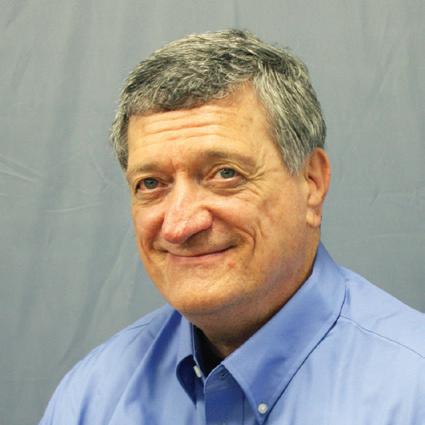
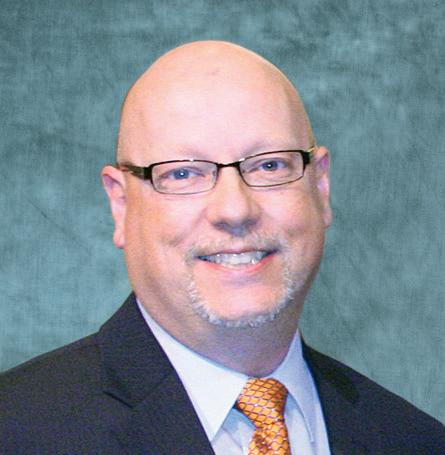
Pastors, join the IBSA Pastors’ Prayer Room on Facebook. E-mail oweaver7307@gmail.com.
Location: Surrey Park (Glen Ellyn)
believe in God with absolute certainty
– Pew Research
pinterest.com/illinoisBaptist


Honor dads with bacon. Yes, bacon. This goofy idea worked at an Illinois church. The student ministry passed out bacon at the door. They’re still talking about it. Dads don’t want flowers or a bookmark. Dads want bacon. Hot, crispy bacon. And it makes the worship center smell terrific!

Resource magazine has summer outreach ideas for “20 Great Weekends.” Read online at Resource.IBSA.org (pages 14-16) or get your free copy by e-mailing Communications@IBSA.org.

Characteristics: Located on the very edge of Glen Ellyn, this small, diverse enclave of apartment buildings, condos and single family houses is home to around 1,000 Pakistani and Indian Muslims, as well as Hispanic/Latino peoples and African Americans.
Prayer needs: Engagement in this community could look like persistent prayer walking, summer youth programs in the park, and building long-term, genuine relationships.